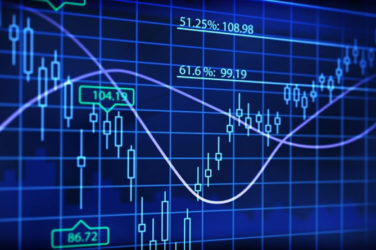Investors Have the Best Stock Market Ever — Thanks to HFT (by Bill Harts, MMI)
05.13.2016Would you like to retire with 32% more money in your 401(k) account? Do you want to be sure your online brokerage is providing you with the best prices on your stock trades? Do you want to ensure your mutual funds have the potential to generate a higher return for you than even a decade ago?
These conditions already exist in today’s market, and they have come from an unlikely source: high frequency trading, or HFT. But a recent MarketWatch opinion piece would have you believe HFT is bad for small investors. Here’s why you shouldn’t listen.
The author gets quite a number of things wrong, including his main premise that HFT intermediaries have no obligation to get the best price for investors. Look no further than Wall Street regulator Finra to see that is just not true.
He also states that market makers make money through rebates by improving prices by a fraction of a cent. They can’t. We were surprised that the author implies TD Ameritrade AMTD, +0.27% —long known for its high standards of execution quality—would jeopardize its reputation by routing to venues where their clients wouldn’t get the best possible execution. It doesn’t.
High-frequency trading firms have helped investors find trading partners quickly for a fraction of the cost of manual intermediaries.
In fact, HFT’s role in creating the best markets ever for individual investors is well-documented by the very mutual funds and online trading firms you likely use.
Vanguard, for instance, credits the rise of HFT for providing its investors with “hundreds of millions of dollars a year in savings” due to the dramatic reduction in trading costs. These are savings that result in more money in your portfolio that can grow over time. How much more? In a letter to the Securities and Exchange Commission, Vanguard calculated that $10,000 invested over 30 years would appreciate to “approximately $132,000 … compared to approximately $100,000” because of HFT. That’s no small drop in the bucket.
And those savings are also present in your online brokerage account. TD Ameritrade CEO Fred Tomczyk said “there’s no question the retail investor’s getting a better deal today with lower transaction costs, lower spreads and quicker response time than any time in history.” This is because “high-frequency trading in general has been good for the retail investor.”
Last year, Barron’s reported that HFT firms servicing discount brokerage orders have created price improvements facilitating “a wealth transfer from Wall Street to Main Street worth more than a $1 billion in recent years.” Clearly small investors are reaping tremendous benefit from the efficiencies introduced by electronic trading.
So how did we get here?
When the SEC prodded competition for stock exchanges a few years back, the number of places to trade stocks went from a handful to several dozen. HFT firms, ranging from private companies like Global Trading Systems and Quantlab to public companies KCG Holdings Inc. KCG, +0.62% and Virtu Financial Inc. VIRT, +1.03% , became important market participants because of their ability to use technology to be in several markets at once, competing against each other to offer the best price. In effect, they could help investors find trading partners quickly across all trading venues. And they did it for a fraction of the cost of manual intermediaries.
Harold Bradley, former head of trading for American Century Mutual Funds, co-wrote a paper pointing out that “HFTs are willing to work for 98% less than what the average market marker of yesteryear made.” In short order, HFT became the dominant intermediaries in the market. Efficiency went up and costs came down.
Given the many enhancements investors large and small have enjoyed because of the technological revolution in the markets, it’s important to stick to the facts when examining where the market can be improved. If the point of the op-ed is that the markets aren’t perfect, I agree. But don’t go around using fear tactics to tell Mom and Pop investors they “don’t understand” how badly they are being taken advantage of. It isn’t true.
Bill Harts is the CEO of Modern Markets Initiative, the industry advocate supporting the benefits of automated, high frequency trading, and is known in the financial services industry as a pioneer of algorithmic trading.





